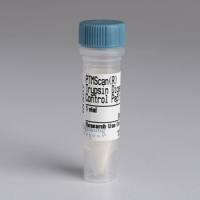Investigation of Age-Specific Behavioral and Proteomic Changes in an Animal Model of Chronic Ethanol Exposure
互联网
531
Alcohol use during adolescence represents a major health concern given that this is a period in which the brain continues to undergo critical developmental changes. Much behavioral research has been conducted in animal models of alcohol exposure, and a vulnerable period in adolescence has been identified that suggests lasting effects of ethanol exposure during adolescence. However, identification of molecular changes underlying the behavioral outcomes observed as a result from exposure to ethanol during adolescence remains a major technical challenge. In this chapter, we describe a method that allows for assessment of the effects of chronic ethanol exposure during adolescence relative to adulthood through global-scale analysis of protein expression as well as evaluation of behavioral responsivity in adolescent and adult rats. Results from this type of analysis can facilitate identification of age-specific molecular markers associated with behavioral changes following treatment with ethanol or in other animal models of drug abuse.









